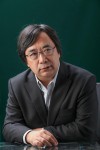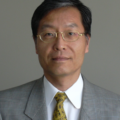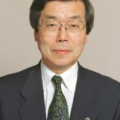INTRODUCTION: Special Extensive Edition–New Abe Administration and 4 Key Themes
Japan’s Foreign Policy Amid Global Political, Economic Changes

KUDO Yasushi
In 2012, new administrations were established in the United States, China and other parts of the world. Also in Japan, the Liberal Democratic Party overwhelmingly won the House of Representatives election in December and regained power from the Democratic Party of Japan, elevating Shinzo Abe to the post of prime minister again.
Amid the United States’ focus shift to the Asia Pacific region and the rise of China, the eyes of the world are on Japan’s role on the international stage, especially how the new Abe administration will steer Japan’s foreign policy.
We, the Editorial Board, have decided to merge the 13th to 15th issues to run a special extensive edition this time for our interactive Web magazine, “Discuss Japan – Japan Foreign Policy Forum,” promoting discussions under the following four themes: (1) Japan’s role amid the rise of Asia and “pivot” toward Asia (2) Is Japan tilting to the right? (3) Japan desires no conflicts (4) Have Japan’s politics really changed?
1) Japan’s Role Amid Asia’s Rise, “Pivot” (Rebalance) Toward Asia
In the middle of world interests shifting toward the Asia-Pacific region, U.S. President Barack Obama was re-elected in the United States and Xi Jinping became the new leader of China. Amid Asia’s rise and “pivot” (rebalance) toward Asia, Japan is expected to play active roles in Asia. As Abe returned to office for his second stint as prime minister, how will his new administration deal with the tension-intensifying situation in East Asia, and strengthen Japan’s role in Asia?
2) Is Japan Tilting To Right?
Along with the launch of the Abe administration, foreign media have expressed their concerns at Japan’s so-called ”tilt to the right.” It appears that LDP President Abe’s apparently “brave” remarks prior to the general election, including those on amendment of the Constitution and creation of a national defense force (in departure from the current “Self-Defense Forces”), remind many in the world of Japan’s image before and during World War II. A number of these reports and concerns are based on misunderstandings of present-day Japan, but it is necessary to sincerely address these concerns of other countries. The question is whether Japan and its people are really tilting to the right.
3) Japan desires no conflicts
The Japan-China relationship has been jolted by the tension over the Senkaku Islands. Behind it are the rise of China and a lack of transparency in China’s expanding military power. Nonetheless, Japan and China, which have become the world’s second and third largest economies, respectively, have numerous common interests, and turbulence in their relations could cause critical damage to the whole world. There should be no room for conflicts not only for the sake of the future of Asia but also for the future of the two countries.
4) Have Japan’s politics really changed?
Japan has long been seen from overseas as a nation with ”politics that can’t decide.” But recently, some positive outcomes have been pointed out. Along with the launch of the second-time Abe administration, the strong yen has been corrected somewhat, stock prices have risen, and real estate buying has picked up. Now the world’s attention is on whether Abe is able to salvage and resurrect the ”sinking Japan” through his ”Abenomics” economic policy. Moreover, at stake is whether Japan’s politics can really transform into ”politics that can decide.”
====================
Kudo is representative of The Genron NPO


